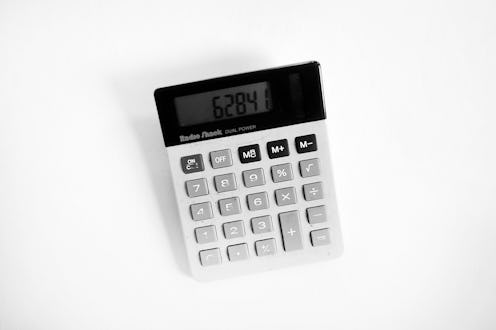We all know that nature is math — but what about love? Can a mathematical formula really lead to love? According to Dr. Hannah Fry, it can — and she's figured out exactly what that formula is. Are you ready for this? Here we go. It's:
Proud + Proactive + Provokable = Love
So simple… yet kind of obscure at the same time. Let's unpack this equation a little bit and see what it's getting at, shall we?
Fry, who teaches at University College London, is the author of the recently-published book T he M athematics of Love : Patterns, Proofs, and the Search for the Ultimate Equation. Although the book certainly does have a good deal of hard math in it (check out this excerpt about the mathematical odds of sexual success over at The Guardian), I think this particular equation is actually less about math and more about cultivating the kinds of qualities that people in healthy relationships tend to have. What do I mean by that? According to Cosmopolitan, Fry defines her terms in a way that makes it all super clear — and it doesn't require you to dredge up any memories of high school algebra, either.
1. Be proud of yourself.
Pride is often described as a fault more than a virtue, but that's only when “pride” becomes “snootiness.” When people dole out “just be yourself!” and “be more confident!” as dating advice, what they're really getting at is Fry's point: Take pride in what makes you… well, you. It's about being comfortable in your own skin, reveling in your uniqueness, and being OK with the fact that you may not be everyone's cup of tea (nor will they be yours, for that matter).
There's data to back the pride factor up, too: OKCupid founder Christian Rudder and his data analysis team randomly selected 5,000 women who use the site. When they compared each woman's average attractiveness score with how many messages she had received in a month, guess what they found? Women whose attractiveness scores covered a wide range of answers — that is, women who really did it for some people and really didn't do it for other — received more messages than those who were universally rated as super ridiculously hot.
Granted, this piece of data only illustrates the physical aspect of this point — which kind of makes sense, given that “hotness” is nominally easier to rate than personality (even if beauty standards really are social constructs). I would imagine something similar might happen if personality were as quantifiable as appearance is, though.
2. Go after what you want.
Proactivity is perhaps the easiest part of the equation to explain: If you see something you like, go get it. Sometimes that's easier said than done, though, so if you need a little help coming out of your shell, check out these useful tips from SheKnows. Ultimately, you just have to start looking at it from this perspective: What's the worst that could happen? He or she says no, and you move on — no big deal. The best that could happen, though? That's worth stepping out of your comfort zone for.
3. Speak up when something is bothering you.
If “proactive” is the clearest part of the equation, “provokable” is probably the most obscure. What it really means, though, is learning how to fight with your partner in a productive and constructive way. Need proof that fighting is good for you? Psychologist John Gottman conducted an experiment that drove the point home. By keeping track of things like the blood pressure and heart rates of a whole bunch of married couples while they fought, he found he was able to accurately predict whether or not those couples would stay together: The ones who were upfront about how they were feeling stayed together much more frequently than those who didn't. The takeaway: Fighting with your partner is healthy — as long as you fight fair.
So there you have it — the “mathematical formula” to love that turns out to be not so mathematical in the end. Obviously there's an almost infinite number of things that go into whether or not a relationship works; these three qualities, though, are a good place to start. Happy dating, everyone!
Images: Giphy (3)
